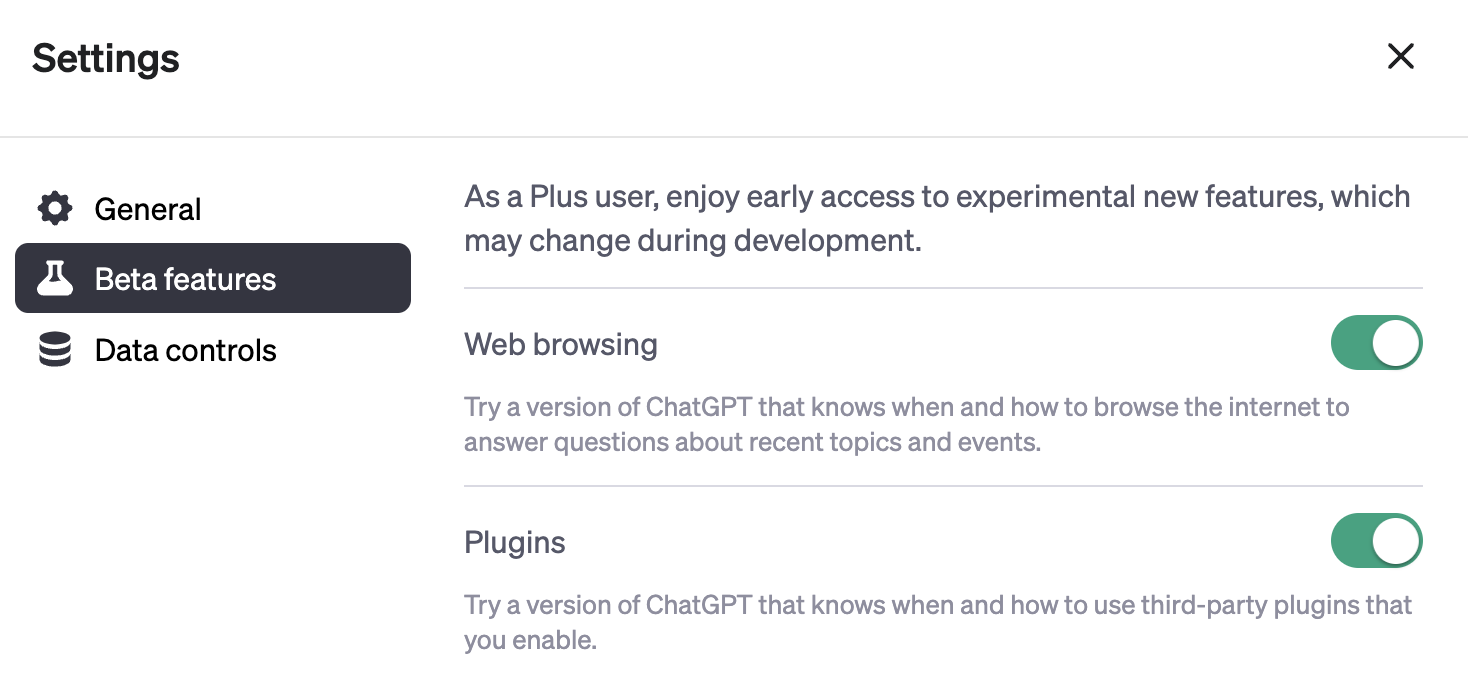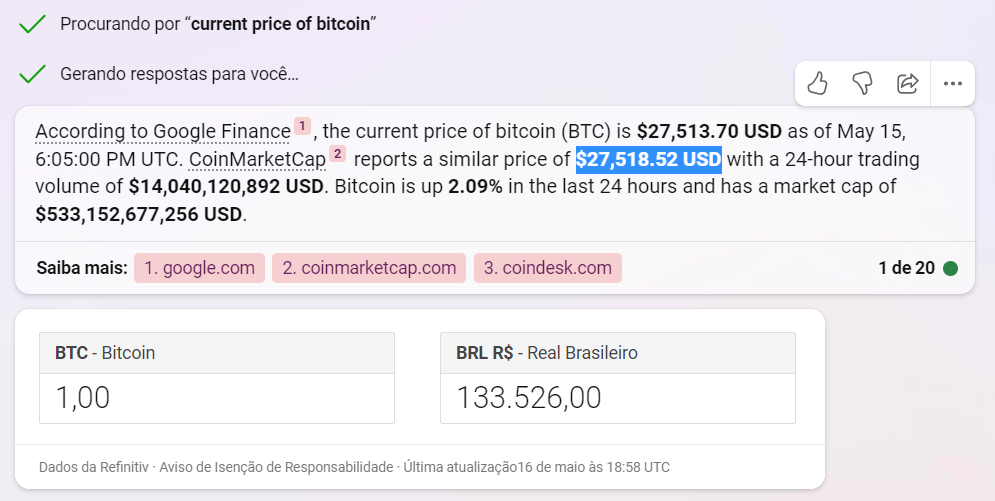Blockchain
OpenAI recently leveled the playing field in artificial intelligence (AI) chatbots with a notable update to its ChatGPT model. What’s new? Internet connection. This used to be a clear advantage of Google’s Bard, but not anymore.
Last March, OpenAI unveiled the concept of ChatGPT plugins and said that ChatGPT would be able to search the web. It has established a waiting list for users and developers interested in testing the feature. These features have now been ported to beta for ChatGPT’s GPT-4 model, making them more widely available.
The move seems to have gained momentum, likely in response to the release of Google Bard and its features. The web browsing feature also pits ChatGPT against Microsoft Bing, which is free and uses GPT-4, just like OpenAI’s model.
For ChatGPT Plus subscribers, the path to enable this feature is in the account settings. In the “Beta Features” tab, users can activate the Internet connection, after which they will be able to request real-time information during their chat sessions.

The potential of this feature is huge, allowing the model to surf the web and get the latest information on almost anything. The catch? It is only available to a select few people as it is undergoing beta phase, which means not all ChatGPT Plus users will have access at this stage. Also, OpenAI has not clarified whether it has any control over what resources are used by ChatGPT. We’ve tried asking what we consider “unethical” questions and searching for bits of information available on fake news sites, and our attempts have been unsuccessful.
In a side-by-side comparison Decryptthe three chatbots – ChatGPT, Bard and Bing – were asked for the current price of Bitcoin. The results showed some differences in their capabilities. While ChatGPT gave a near-accurate answer using Coinbase as a reference, Bard offered a result based on its own sources, and Bing referenced Google and CoinMarketCap data, even including the USD to Brazilian real exchange rate, since the question was asked from Brazil.

Screenshot of results obtained with ChatGPT.

Screenshot of results obtained with Google Bard.

Screenshot of results obtained with Microsoft Bing.
Google Bard and Bing were faster than ChatGPT, not only in the speed of their responses, but also in the depth of information provided. Both provided near-instant answers and included additional details such as intraday fluctuations, high-low prices, trading volume, and price changes – elements that are currently missing from ChatGPT’s responses. However, ChatGPT was quite capable in tasks that required more creative outcomes, such as summarizing or explaining news articles.
Despite these differences, OpenAI’s move to include internet connectivity in ChatGPT is an important step in the AI chatbot contest. While it’s true that the “Plus” benefits can be had for free with other models, ChatGPT’s ability to access real-time data gives it a fighting chance. This is just another leg in the ongoing AI race, one still far from the finish.

